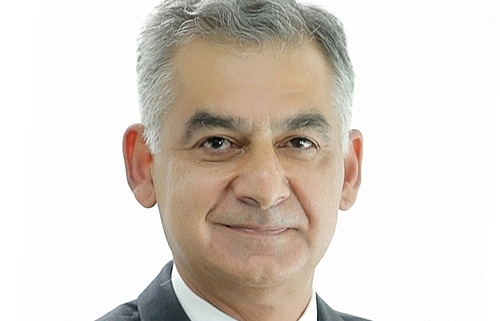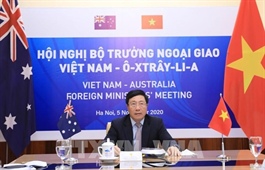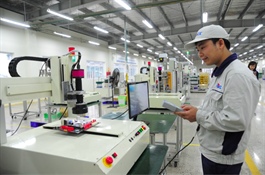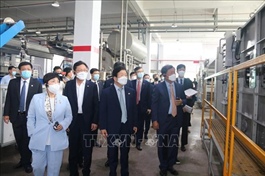Standard Chartered CEO: Positive growth anticipated for Vietnam
Standard Chartered CEO: Positive growth anticipated for Vietnam
Nirukt Sapru, CEO Vietnam and ASEAN and South Asia Cluster Markets, Standard Chartered Bank looks into the growth prospects of the Vietnamese economy in 2021 and how Vietnam can sustain high economic growth in the coming years.

Nirukt Sapru, CEO Vietnam and ASEAN and South Asia Cluster Markets, Standard Chartered Bank
|
Standard Chartered forecasts that Vietnam’s economic growth will rebound to 7.8 per cent in 2021, which is higher than the government’s target of 6 per cent. What underpins this positive forecast?
Vietnam’s economic growth is widely expected to accelerate in 2021, extending the country’s economic recovery from the worst of the COVID-19 downturn.
Our forecast is based on a continuation of the manufacturing recovery momentum seen recently. The current rebound in trade in Asia and other emerging markets should also provide support. The recovery this time appears to be faster than after the global financial crisis of 2008-2009.
What are the challenges and opportunities for Vietnam’s economy in 2021?
The rebound seen in the third quarter this year should be able to sustain its momentum into 2021; this will depend heavily on domestic support and public investment. Investments in transport and energy infrastructure and digital economy projects are necessary to spur growth in 2021, in our view.
|
Vietnam will continue to serve as an alternative as countries and companies seek to reduce their reliance on China’s manufacturing. |
Vietnam’s effective COVID-19 containment measures have further enhanced its appeal to overseas investors, and we believe the country is becoming one of the most attractive destinations in the world for foreign direct investment. This has been underscored by the recent EU-Vietnam Free Trade Agreement.
That said, there are still sources of uncertainty – particularly whether the global COVID epidemic can be contained soon. The outlook remains vulnerable to setbacks in prospects for a vaccine. Vietnam could also see challenges as global trade barriers and tariffs are increasingly used by countries around the world to protect their economies.
How can Vietnam sustain high economic growth in the coming years?
Significant supply-chain relocation is already underway as a result of US-China trade tensions. Vietnam is a clear beneficiary, and we expect this trend to continue in the next couple of years as global trade tensions persist. Vietnam will continue to serve as an alternative as countries and companies seek to reduce their reliance on China’s manufacturing. This is positive for the country’s medium- to long-term growth prospects and should allow Vietnam to remain one of the best-performing economies globally, as it has been over the past decade.
Vietnam’s goal is to cement its position as a growing economy with modern infrastructure, including a focus on not just industrial infrastructure but also digital infrastructure. To achieve this aim, we believe domestic resilience will be crucial in the short term, as external headwinds to trade and investment may persist over the next few years.
We also think Vietnam should continue to take clear steps towards international economic integration to provide a long-term boost to trade. Further ahead, the economy will have to become more competitive in the global value chain as Vietnam seeks to become a high-income country by 2045.























